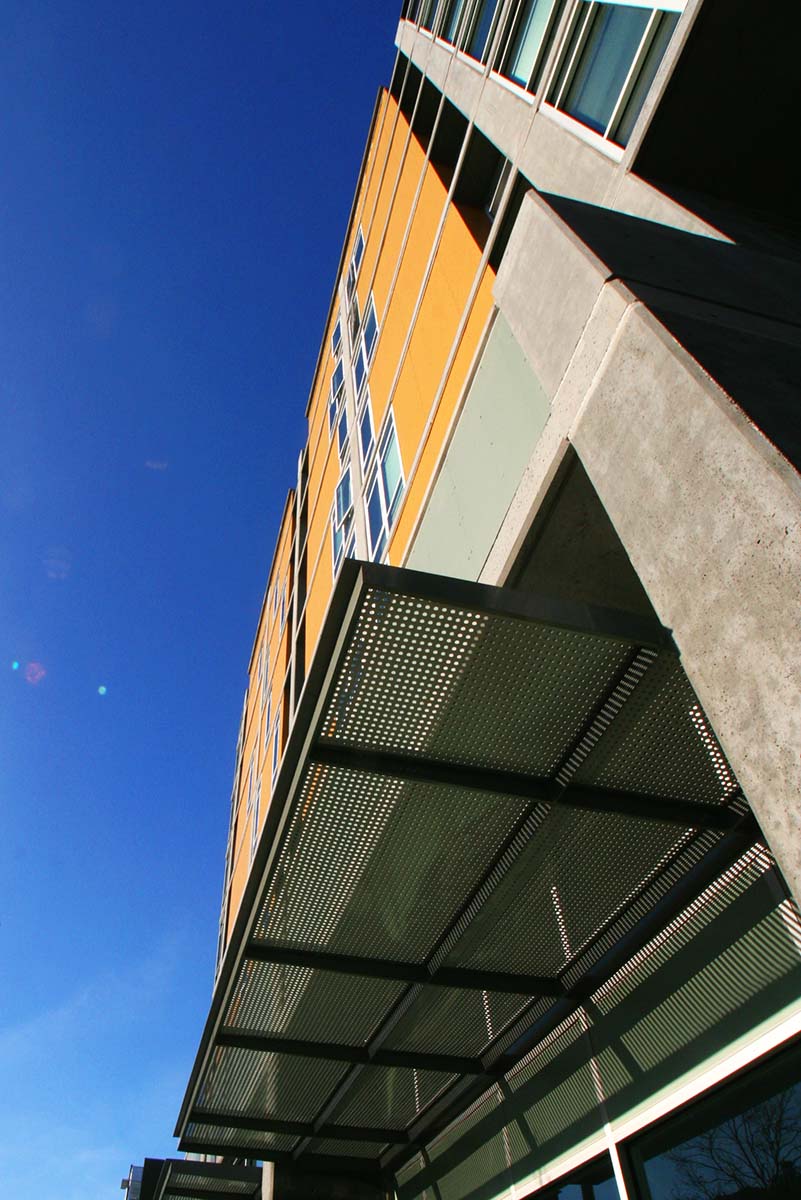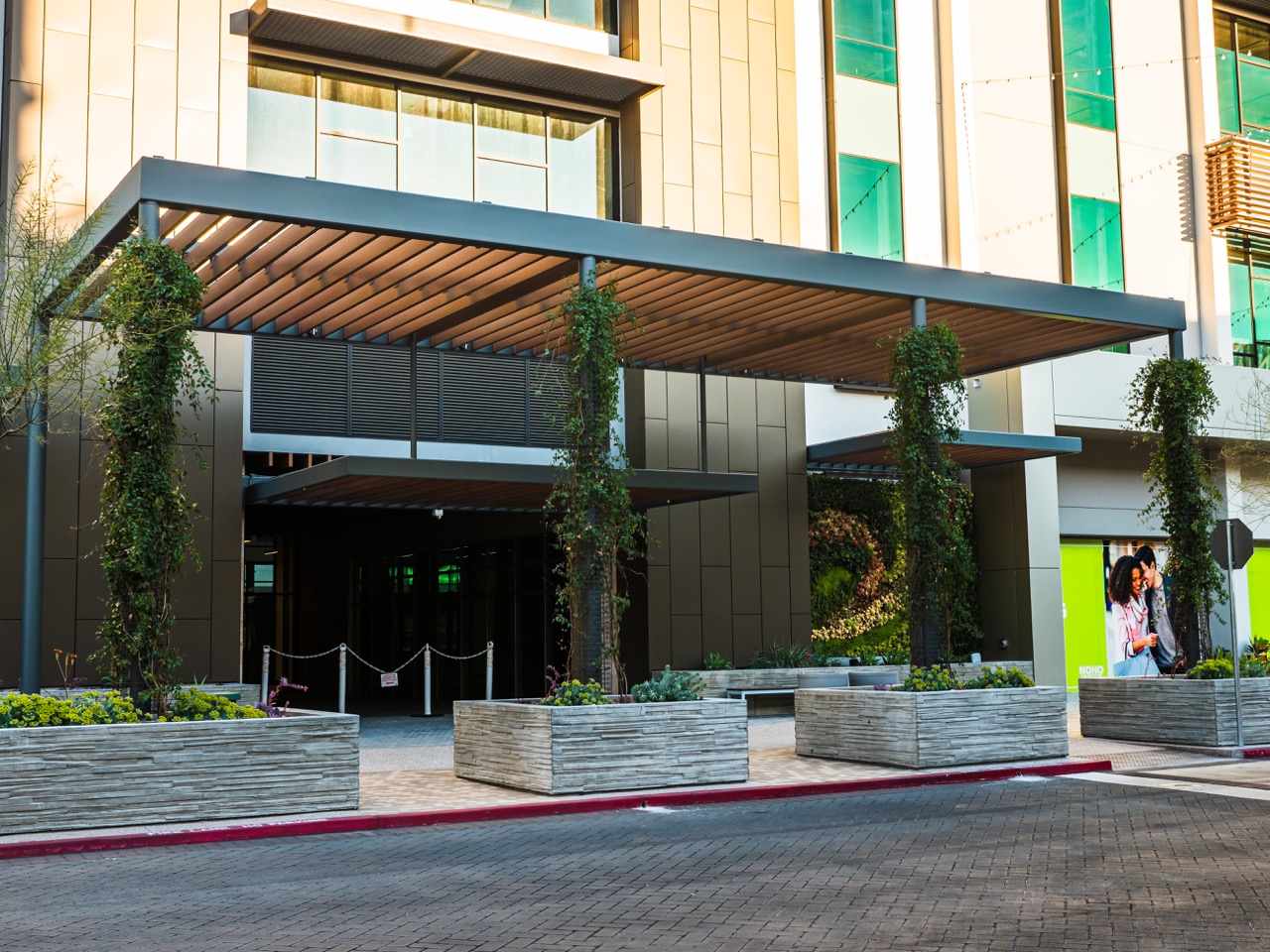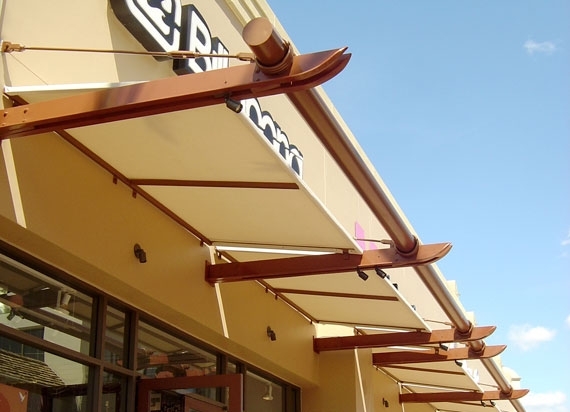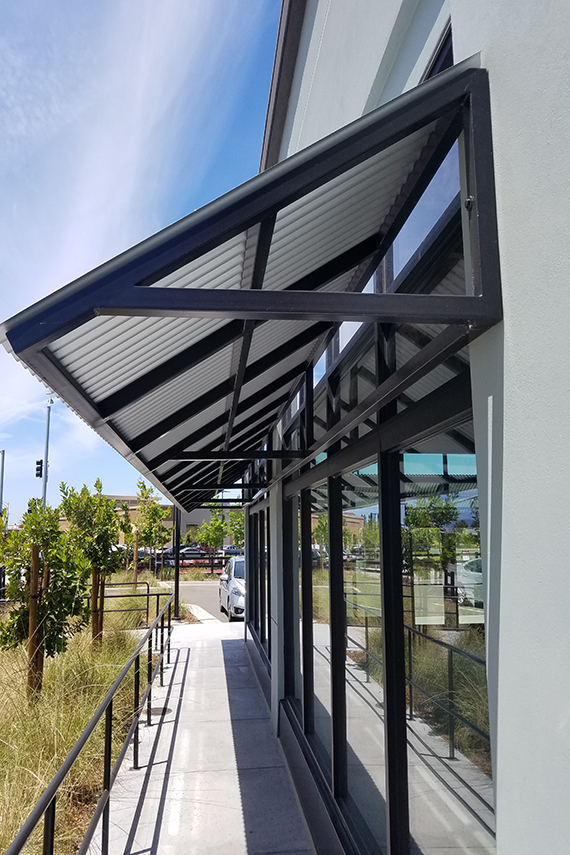
Mission Statement
B&C is dedicated to assisting Architects, Developers, General Contractors and Owners bring their design concepts to life without compromising quality and value.
What We Offer
Custom Metal Awnings
Our custom metal awnings offer a seamless blend of style and durability. Engineered to enhance curb appeal, they provide a personalized touch and robust protection, ensuring long-lasting performance and visual appeal for your property.
Premium Finishes
Our awnings feature high-quality finishes, including powder coating and other options, ensuring not only durability but also a stylish and seamless integration with your building’s architecture.
Fabric Solutions:
Specializing in custom fabric designs, we offer personalized solutions to meet your unique preferences, whether for awnings, shades, or decorative elements.
CNC Precision:
Leveraging cutting-edge CNC technology, our precision engineering allows for intricate and customized detailing, ensuring your awning is crafted with the utmost accuracy and attention to detail.

History
B & C Industries Co., Ltd start as a family business and manufacturer located at Di An, Binh Duong Province since 2007. B & C mainly work in manufacturing aluminum shutter, aluminum awnings, fabric awnings,.etc.
With more than 15 years step by in produce and export aluminum exteriors product to US market, B & C shaping step by step position in foreign architectural system. Our future missions and visions are bring the best standard product with reasonable price for customer not only in US but also Europe market.
Quality Control
We prioritize quality and use high-grade materials and rigorous testing to ensure our metal awnings exceed industry standards
FAQ
What materials are metal awnings typically made from?
Metal awnings are commonly made from a variety of materials, each with its own set of advantages and characteristics. The choice of material often depends on factors such as durability, weight, cost, and aesthetics. Some of the common materials used for metal awnings include:
- Aluminum: Aluminum is a popular choice for metal awnings due to its lightweight nature, durability, and resistance to rust and corrosion. It is also relatively low-maintenance and can be easily painted or coated for added protection.
- Steel: Steel is a strong and sturdy material commonly used for awnings. It provides excellent structural support and can withstand harsh weather conditions.
- Copper: Copper awnings are known for their distinctive appearance and ability to develop a natural patina over time. While copper is durable, it is also more expensive than aluminum and steel.
- Galvanized Steel: This type of steel is coated with a layer of zinc to enhance its resistance to corrosion. Galvanized steel is a cost-effective option that provides good durability.
- Wrought Iron: Wrought iron awnings are heavy and have a classic, ornate appearance. While they are durable and can add a touch of elegance, they may require more maintenance to prevent rust.
- Zinc: Zinc-coated or zinc-aluminum alloy materials are used for corrosion resistance. These materials are often combined with other metals to create a durable and weather-resistant awning.
- Stainless Steel: Stainless steel is resistant to corrosion and rust, making it a durable choice for awnings. It is often used in coastal areas or environments with high humidity.
The choice of material depends on factors such as the specific requirements of the installation site, budget considerations, and the desired aesthetic appeal. It’s essential to consider the local climate and environmental conditions when selecting a material to ensure the longevity and performance of the metal awning.
How long do metal awnings typically last?
Metal awnings, crafted from durable materials such as aluminum, steel, or copper, boast impressive lifespans ranging from 20 to 50 years or more with proper maintenance. Known for their resilience, aluminum awnings offer corrosion resistance, while steel options, when well-maintained, last approximately 20 to 30 years. Copper awnings develop an attractive patina and can endure for 50 years or longer. Galvanized steel, wrought iron, zinc-coated, and stainless steel awnings fall within similar longevity ranges, providing enduring protection and aesthetic appeal. Regular inspections and upkeep are crucial to maximize the lifespan of these durable and stylish metal awnings.
What are the advantages of choosing a metal awning over a fabric one?
Opting for a metal awning over a fabric one offers several advantages. Metal awnings are known for their durability and longevity, with lifespans ranging from 20 to 50 years or more. They provide robust protection against the elements, resisting corrosion, rust, and deterioration. Unlike fabric awnings, metal counterparts are low-maintenance, requiring less frequent cleaning and upkeep. Metal awnings are structurally strong, offering reliable support and stability. They are also fire-resistant, adding an extra layer of safety. Additionally, metal awnings come in various materials such as aluminum, steel, and copper, providing versatile options to suit different aesthetic preferences and architectural styles. Overall, the durability, longevity, low maintenance, and design versatility make metal awnings a compelling choice for both residential and commercial applications.
How are metal awnings installed and are they customizable to fit specific dimensions?
Metal awnings are installed by attaching a framework to the building, followed by the placement of custom-cut metal panels. The process includes adding finishing touches such as trim and gutters. Metal awnings are highly customizable, allowing for the selection of materials like aluminum, steel, or copper, as well as the choice of design, color, and finish. These awnings can be tailored to fit specific dimensions, ensuring a precise fit for the intended space. Professional installers handle the process to guarantee secure attachment and compliance with local building codes.
How do you properly maintain and clean a metal awning?
To maintain a metal awning, conduct regular inspections for damage, addressing issues promptly. Clean the awning with a mixture of mild detergent and water using a soft brush or cloth, avoiding abrasive cleaners. The cleaning frequency depends on local conditions, and routine care helps preserve the awning’s appearance and longevity.


